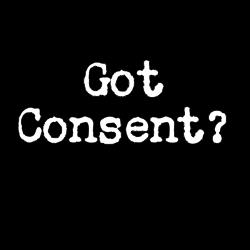The production is the center of action. It is the logical next step because it cannot exist without players, who come to life with a script, which is built upon a story. Before principal photography begins, a production needs permission to film on location, real people, places, or things, and comply with laws regarding use of animals or private conversations. Permits, location agreements, and releases serve as instruments to acquire access, consent, and comply with the law. Laws involve public and private properties, animal exhibitors, privacy and publicity rights, intellectual properties, and telephone communications.
Permits
A permit provides its holder with access to certain rights exclusive to the grantor. The grantee, or licensee has consent to act, but only within certain limitations, such as a specified duration or in a certain territory. If the holder breaches its limitations, the grantor may revoke the permit and pursue legal recourse for any damages sustained due to breach.
Film Permits
Government officials issue permits to productions that wish to film on public land. Public land includes streets, sidewalks, buildings, parks, and recreational facilities. The Georgia Film, Music, and Digital Entertainment Office compiles a list of locations and authorities that routinely review applications and issue film permits in Georgia. Permits generate revenue and regulate film production to insure compliance with the law and land use regulations.
Animal Permits
The United States Animal Welfare Act (AWA) requires animal exhibitors to operate valid permits. The Department of Agriculture (U.S.D.A.) regulates these permits. The Screen Actors Guild (SAG) Minimum Basic Agreement further provides that productions meet the American Humane Association (AHA) rules. The AHA publishes a complete list of guidelines for the safe use of animals in filmed media. Non-SAG productions are not required to work with the AHA, but all productions working with animals must employ U.S.D.A.-permitted animal exhibitors. Productions may apply for additional permits for animals subject to import and export restrictions, use of certain species on location, or for their impact on indigenous wildlife.
Location Agreements
Productions that wish to film on private land require consent from the landowner. Private properties include residential and institutional places of business. Private property owners and production companies may negotiate location agreements that set parameters of consent, which if breached is grounds for trespass or invasion of privacy. Insurance carriers are likely to require location agreements for use of footage depicting private properties.
Private Residences
Consent must be valid to shield from an action for trespass or invasion of privacy. Consent is valid when it is given by an adult with common authority and control over the premises. If a co-occupant is present and refuses entry, consent becomes invalid. Guests and children cannot give valid consent. In rental properties, landlords, building managers, and administrators cannot give valid consent to enter occupied units, but may consent to entry and use of common areas. Hotel managers cannot give valid consent to enter occupied rooms, but they may consent to entry and use of common areas[1]. Even when granted, if a film crew exceeds the scope of consent, it is grounds for trespass or invasion of privacy.
If a private property owner withholds or revokes consent, then there is a limited amount of footage that a film crew may lawfully use. Consent is not required to film the exterior of a residence and its surrounding land if viewed from a street or sidewalk. Consent is required to enter surrounding land, film the interior of a residence, or from a neighboring residence if it provides a view only accessible by private land. If consent is not given verbally or in writing, then it may be implied by a landowner’s conduct. A landowner implies consent when he or she is aware of the presence of a film crew and does not object to its presence.
Private Institutions
Consent is required to enter private institutions, or businesses, if the purpose is to film. If the purpose is to conduct business during normal operating hours, no consent is required and the land is generally open to the public. Undercover filming that occurs in businesses may not be lawful if consent is acquired through dishonest means[2]. Whether dishonest means of obtaining consent for entry is lawful remains an issue to be decided uniformly by the courts; United States authorities are divided over whether deceit vitiates consent[3]. In one case, a court denied consent as a defense raised by a reporter sued for trespass by a medical facility when he posed as a patient and provided false identification and insurance cards[4]. In another case, a film crew used footage obtained with consent of the business owner to write a story that was not disclosed; the owner sued, but the court awarded only nominal damages[5].
Releases
Releases provide productions with consent to film a crowd, a person, or a prop. While consent permits an act be done, a release further limits recourse available. A crowd release limits privacy claims, a personal release limits privacy, defamation, or publicity claims, and a prop release limits defamation or infringement claims that may arise from the film. Thus, a release provides consent and further shields the production from liability.
Crowd Releases
Crowd releases passively acquire consent. Passive, or constructive, notice requires a production to post signage in highly visible areas, usually an entrance and an exit, to indicate that filming is taking place and entry constitutes personal consent to be filmed. Productions are likely to post crowd releases in public, semi-private, or private areas where members of the public converge. Crowd releases limit claims for invasion of privacy by the public; it therefore provides a practical solution to lawfully use footage of multiple parties.
A production can be liable if it films outside the scope of a release and in areas where a person has a reasonable expectation of privacy. Facts courts consider in reviewing invasion of privacy claims include physical aspects of a venue, individuals who have access, and awareness of the presence of recording devices[6]. For example, persons backstage at a concert venue may not have a reasonable expectation of privacy, but those in dressing rooms likely do. A person waives any expectation of privacy if attending a rowdy party in the French Quarter of New Orleans during Mardi Gras and posing naked for photos with a famous rapper[7].
Personal Release
A personal release actively acquires consent. A non-actor consents to use of his or her identity to commercially exploit a film with a limit on commercial tie-ins and endorsements. The release limits claims for privacy, publicity, or defamation that may be brought by the person. Insurance carriers require personal releases from non-actors. It is less likely that a personal release is required if at all for public figures speaking during a newsworthy event. If it is not possible to obtain a personal release, the production may blur the picture and disguise the voice and/or context in which a person is filmed, or simply not use the footage.
Prop Release
A prop release grants the production access to exclusive rights in protected elements. Examples of protected elements are copyrighted works or trademarks that appear as props or set dressing. The release is a non-exclusive license to use protected elements. A prop release limits claims for defamation or infringement by the rights holder. The rights holder affirms ownership in the protected elements and shields the production company from breach of this promise. If a prop release is not obtained, the production company may hire a prop house to customize items not requiring clearance, pixelate, or blur any protected elements.
Telephone Communications
Recording and use of telephone conversations requires consent by one or all parties. The federal government and majority of states, including Georgia, require that one participant to the communication, or someone authorized by that participant, consent to recording[8]. A minority of states require that all parties consent before a private communication can lawfully be recorded. If consent is not lawfully obtained, the production company may not use the recording without risk. If communications involve states with conflicting laws the courts decide which law applies.
This concludes our discussion on The Production. The final section will address music in film, from commissioning new works, to working with artists, composers, publishers, record labels, and finally, music supervisors.
[+]
| 1 | Georgia v. Randolph, 547 U.S. 103 (2006). |
|---|---|
| 2 | Food Lion, Inc. v. Capital Cities/ABC, Inc., 194 F.3d 505 (4th Cir. 1999). |
| 3 | Theofel v. Farey-Jones, 359 F.3d 1066 (9th Cir. 2004). |
| 4 | Shiffman v. Empire Blue Cross and Blue Shield, 256 A.D.2d 131 (1998). |
| 5 | La Luna Enterprises, Inc. v. CBS Corp., 74 F. Supp. 2d 384 (S.D.N.Y. 1999). |
| 6 | Bowens v. Ary, Inc., 489 Mich. 851 (2011). |
| 7 | Capdeboscq v. Francis, 2004 WL 463316, *3 (E.D. La. 2004). |
| 8 | O.C.G.A. 16-11-62. |




